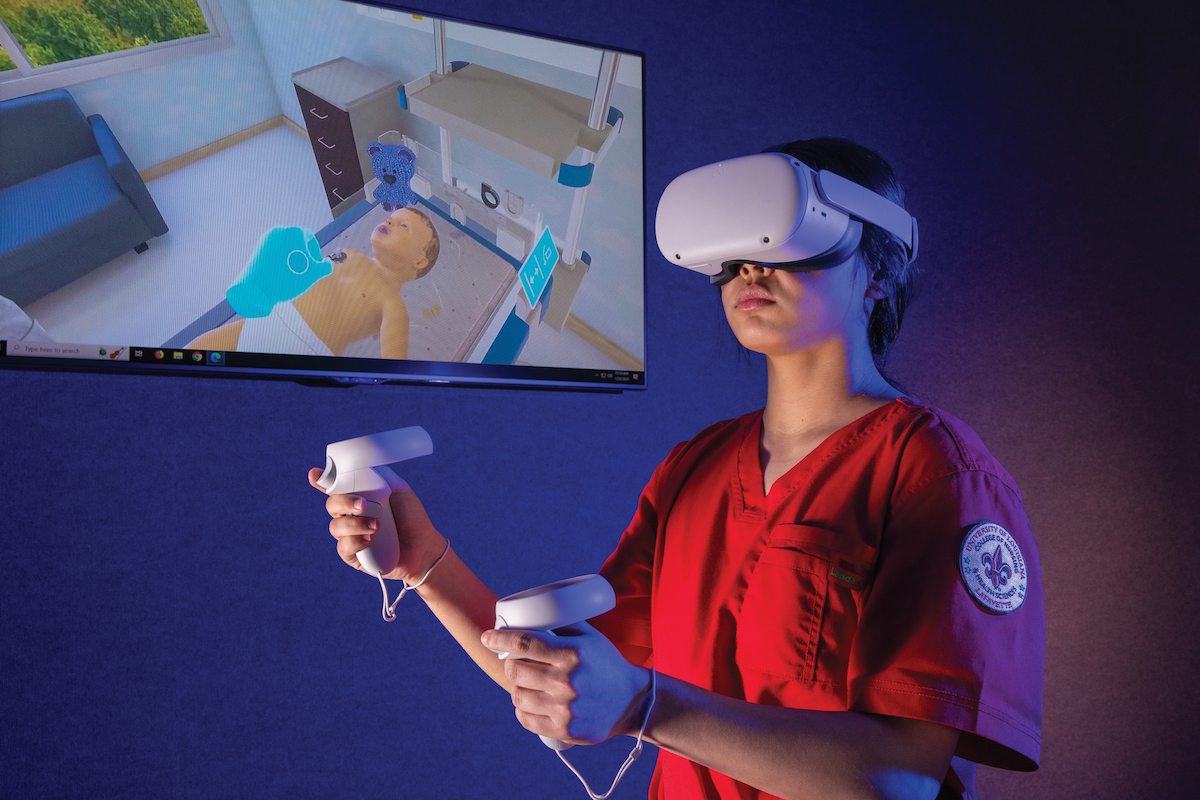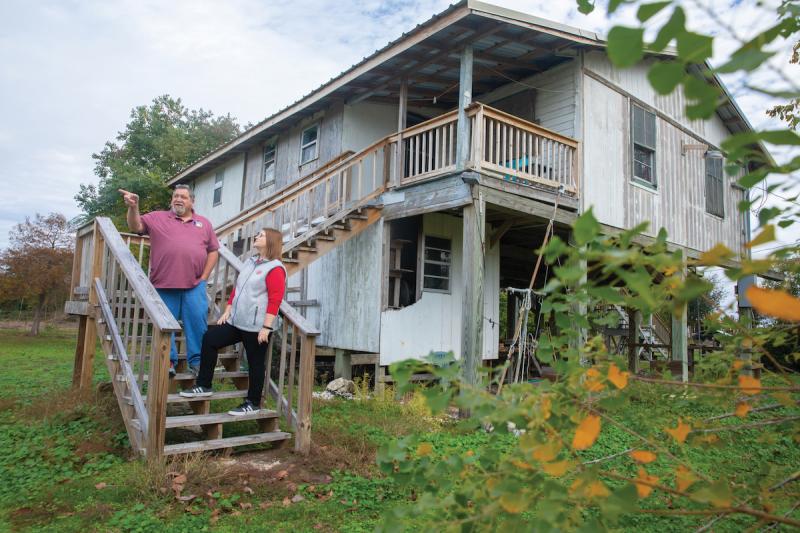Linh Tran faced an unexpected challenge in her community nursing course when her instructor brought her class to a low-income housing development to administer complimentary wellness checks. Getting the residents' permission to test their vital signs and blood pressure didn't take much convincing, but the students also needed to evaluate patients' living spaces. Tran's patient didn't have time for a walk-through, and she eventually had to tag along with one of her classmates to complete the requirement.
The process revealed a problem that persists in health care training. Real-world practice is crucial but creating equitable experiences for students can prove difficult. Obstacles like patient buy-in and safety play a major role. For students and faculty in the LHC Group • Myers School of Nursing in the College of Nursing & Health Sciences at UL Lafayette, virtual reality presents an attractive alternative. Technology can provide realistic experiences without relying solely on people's goodwill. It's going to be the future, they said, and nurses learn by doing.
The School of Nursing had the opportunity to put this to the test, thanks to a grant from the Advance Student Research Experience. Nursing faculty members collaborated with colleagues in the Department of Psychology in the College of Liberal Arts and School of Computing & Informatics in the Ray P. Authement College of Sciences to conduct a student-led research project that used virtual reality to simulate a home visit, like the one Tran and her classmates conducted. Psychology professor Dr. Hung-Chu Lin served as the project's principal investigator. She said she was thrilled to expand her virtual reality research, especially with undergraduates and her colleagues in nursing and computer science.
"We need people coming from different perspectives," said Lin. "Not only their knowledge, but also their real technical support, to be able to do things like this."
Dr. Arun K. Kulshreshth, director of the Human-Computer Interaction Laboratory and an associate professor in the School of Computing & Informatics, helped the nursing school adapt open-source software from the University of Wisconsin-Madison and purchase virtual reality headsets and computers. Roberto Salazar, a doctoral student in Kulshreshth's lab, customized the program so that when students put on the VR headsets, they could explore the interior of a home and identify potential hazards. The research team gave students the opportunity to participate in the virtual reality simulation, then evaluate their experiences. Salazar said working with the psychology department to conduct the experiment opened his eyes to the value of integrating their research. "We research about how we (as humans) interact with computers," said Salazar. "So, we have to have psychology involved in our research."
Tran, who accepted a job in the neurology department at Duke University Hospital in North Carolina after her graduation in December, participated in the study as a student researcher and presented the team's findings at the UL Lafayette Undergraduate Research Conference. She said the experience helped confirm her desire to pursue a graduate degree in nursing. "If you have a group of people from multiple disciplines, you can create something wonderful," said Tran.
Lin, Kulshreshth and Dr. Michael Hebert, then an instructor in the School of Nursing, published an article featuring the results of their mixed-methods study in the Journal of Community Health Nursing. Hebert said this project gave them all a taste of what was possible. "There are so many things that we are looking at as a team. We know we're going to have more and more that we can test. You get all those people together in one room – it's powerful."
Photo caption: Nursing students can practice evaluating a newborn's vital signs in the college's new VR lab. Photo credit: Doug Dugas / University of Louisiana at Lafayette

